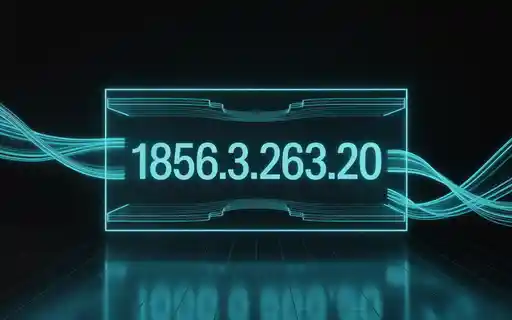In today’s interconnected environment, every number and symbol on the web carries significance. 185.63.263.20 may look like just another string of digits, but within networking and cybersecurity, such addresses represent critical pathways of communication, identification, and sometimes vulnerability. Knowing how to interpret and manage these digital coordinates is essential for businesses, IT professionals, and even everyday internet users who care about privacy and security.
What Is 185.63.263.20?
At its simplest, 185.63.263.20 is an IP (Internet Protocol) address—a unique numerical label assigned to a device, server, or service within a network. Every time a computer connects to the internet, an IP address facilitates routing and communication. Unlike domain names, which are human-friendly, IP addresses are machine-readable markers that tell data where to go.
Understanding an address like 185.63.263.20 helps in pinpointing origin, tracking activity, and ensuring correct configuration in network systems. Whether it belongs to a web server, a proxy, or a private host, this identifier plays a vital role in digital interactions.
Why Does 185.63.263.20 Matter?
There are several reasons why 185.63.263.20 and other similar IP addresses matter:
- Network Routing: Ensures that information packets reach the right destination without confusion.
- Identity and Authentication: Validates devices and servers participating in communication.
- Security Monitoring: Helps detect unusual traffic patterns or potential threats.
- Resource Allocation: Ensures efficient use of bandwidth and server capacity.
When organizations overlook details tied to addresses like 185.63.263.20, they open the door to misconfigurations, outages, or security breaches.
The Role of 185.63.263.20 in Cybersecurity
From a cybersecurity standpoint, 185.63.263.20 could either represent a trusted server or a suspicious endpoint. Security teams often scan and log IP addresses to detect anomalies. If unusual activity is linked to 185.63.263.20, for example, it may trigger alerts that lead to further investigation.
Modern firewalls, intrusion detection systems, and security analysts rely heavily on IP intelligence. Whether analyzing web traffic or investigating a cyberattack, knowing the patterns associated with an address like 185.63.263.20 is invaluable.
Common Uses of 185.63.263.20
Web Hosting and Servers
Addresses like 185.63.263.20 often point to web servers hosting websites or applications. Configuring DNS records, SSL certificates, and security protocols all depend on correctly mapping such addresses.
Remote Access and VPNs
In corporate networks, employees might connect through VPNs that assign or mask IP addresses. If 185.63.263.20 is linked to a VPN endpoint, it may represent secure entry into private systems.
Traffic Analysis
Network administrators track addresses like 185.63.263.20 to evaluate bandwidth consumption, optimize resources, and balance loads across servers.
Blocklists and Filtering
Some addresses, including 185.63.263.20, may end up on blocklists if associated with malicious behavior. Filtering at the firewall or application level prevents harmful connections.
Risks and Challenges Linked to 185.63.263.20
Despite its neutral nature, 185.63.263.20 can pose challenges if mishandled:
- Privacy Concerns: IP addresses reveal location data that may compromise anonymity.
- Spoofing Risks: Attackers may mask themselves using false IPs resembling trusted addresses.
- Overexposure: Leaving 185.63.263.20 unprotected on the open internet may invite scans and attacks.
- Misidentification: Assuming intent solely from an IP can lead to false positives in threat detection.
Organizations must adopt layered defenses, from encryption to intrusion detection, ensuring that any interaction with 185.63.263.20 or similar addresses remains secure.
Best Practices for Managing 185.63.263.20
- Regular Monitoring: Track traffic involving 185.63.263.20 for irregularities.
- Access Control: Restrict who and what can connect to critical IPs.
- Patch Management: Ensure systems tied to 185.63.263.20 run updated software.
- Use of VPNs and Firewalls: Shield direct exposure of IP addresses to reduce attack surfaces.
- Incident Response Planning: Treat anomalies tied to 185.63.263.20 seriously, with clear escalation procedures.
Conclusion
While at first glance 185.63.263.20 appears to be just a string of numbers, its importance within the internet ecosystem is undeniable. From hosting and routing to security monitoring and access control, every IP address tells a story about connectivity and risk. By understanding and managing such identifiers carefully, businesses and individuals can safeguard digital assets, ensure efficient communication, and stay resilient in the face of evolving cyber threats.
